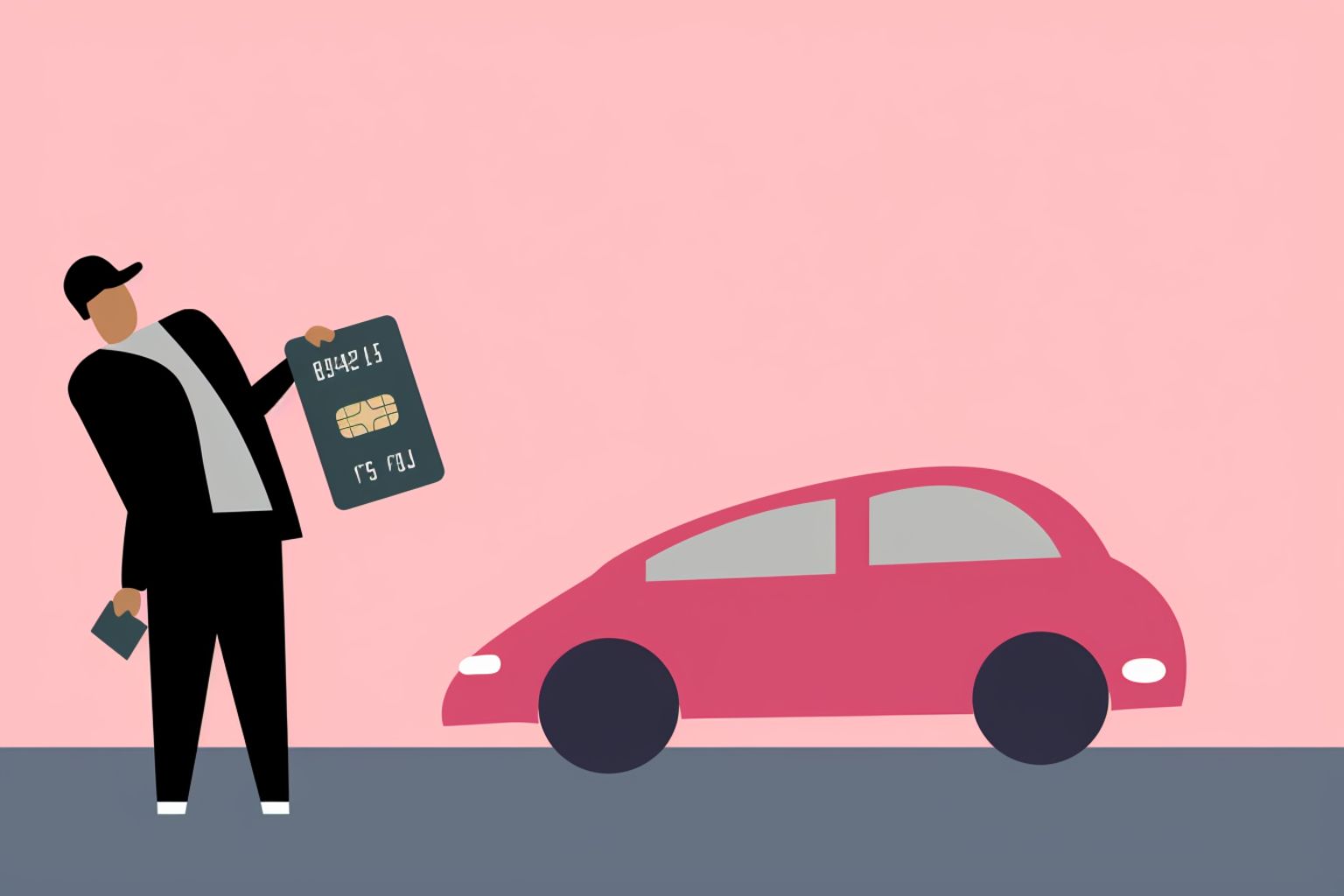If you’re having trouble with a product or service, there is a way out — and you don’t have to hire an expensive lawyer or call the cops to fix your consumer problem. You can do it yourself.
How can you do it for yourself? You need to time your complaint correctly, have an airtight case, keep everything in writing and climb the appeals ladder, if necessary. And always remember the three “P”s — be patient, persistent and polite. These principles are also known as the Elliott Method.
When should you complain to a company?
✓ If it’s something that can easily be fixed in real-time, like a wrong food order at a restaurant, or a hotel room with a noise problem.
✓ Lost a significant amount of time or money because of something the company directly controls, like a reservation system or a staff decision. You should complain directly.
✓ If the problem is so significant that it could affect future customers, even if it wasn’t a terrible inconvenience to you.
When should you not complain to a company?
✓ If the problem is beyond the control of a company, such as the weather or a civil disturbance. Those problems, known as acts of God or force majeure events, can be managed — but not solved.
✓ If too much time has elapsed between your purchase and your grievance. For example, griping about a bad hotel room six months after your stay makes little sense. (Some airlines require that you fill out a complaint within 24 hours, if you’re making a lost-luggage claim.)
✓ If you can’t think of an appropriate solution. For example, how do you compensate someone for a rude server or a housekeeper who entered your room without knocking? If you don’t have any idea, chances are the company doesn’t either. All you’ll get is an apology.
The steps toward fixing your own consumer problem
Stay calm. Even though you may feel like ranting, resist the temptation. You’re going to need to stay focused to get what you want from the company. If you have to, take a few moments to calm down before doing anything.
✓ Act now in real time. Instead of writing a letter or calling when you get home, mention your problem before you check out, deplane, or disembark. The person behind the counter frequently is empowered to fix the issue on the spot. Leave without saying something, and you’ll have to deal with an outsourced call center where operators have 50 ways (or more) to say “no.”
✓ Keep meticulous records. When you have a negative customer experience, record-keeping is critically important. Take snapshots of the bedbug-ridden hotel room, or the rental car with a chipped windshield. Keep all emails, brochures, tickets, and receipts. Print screen shots of your reservation.
✓ Exhaust all levels of appeal in the here and now. If the front desk employee can’t help you, ask for a manager. If a ticket agent can’t fix your itinerary, politely request a supervisor. You’re not being difficult: often, only managers are authorized to make special changes to a reservation, so chances are you’re allowing everyone to do their job, as opposed to being a jerk.
Call or write?
Generally, a well-written complaint is the most efficient way to resolve a problem.
When to call to fix your consumer problem
- If you need a real-time resolution and a paper trail is unimportant. For example, if your flight’s delayed, and you need to get rebooked, sending an email probably won’t work as well as calling.
- When you don’t want to leave a paper trail. Let’s say you want to complain about a staff member’s behavior, but want to keep your correspondence private. A phone call to a supervisor might be the way to do it. Emails can be shared.
- When you don’t need proof of the conversation. You can call to check on a refund or to verify a reservation, and as long as you don’t need to prove you had the conversation, that’s fine.
When to write to fix your consumer problem
- When you need a record of your request and the company’s response. Which is to say, you almost always do. You don’t want the company to have the only record of your conversation, which it would if you phoned.
- If you think this might be a legal matter. And If you think you might have to show proof of your correspondence to an attorney or a judge, you’ll want to get everything in writing.
- If you can’t bring yourself to talk about it. Face it, sometimes you’re going to get too emotional to make much sense on the phone. (Been there, believe me.) Then it’s better to write.
Should I write a letter, send an email or something else?
In the 21st century, you can write and you can write. Here are your options, the benefits and drawbacks of each method.
Paper letter
- Pros: Can command more attention and respect than anything electronic. Thanks to FedEx, you can also make it a priority, and get it directly into the hands of a CEO’s office — a useful thing. USPS is less effective and sometimes ignored.
- Cons: Letters can easily be lost or “misplaced.” They can take several days to deliver, and weeks or months to respond to.
- Pros: Reaches the intended person virtually instantly, and can be forwarded to a supervisor, attorney, or (ahem) media outlet if you don’t get the desired response.
- Cons: Not quite as credible as a real letter. Easy to ignore. Lengthy emails with attachments tend to get filtered to the spam file, which means they may never be seen.
Social media
- Pros: The whole world sees your grievance when you post it online with a callout to the company. Excellent for “shaming” a company into giving you what you want, but can also backfire when you ask for too much.
- Cons: Social media requests generally aren’t taken as seriously, and may be referred back to more conventional contacts, such as a company website or phone number.
Online chat
- Pros: The immediacy of a phone call, with a record you can keep. (Just make sure you remember to save your chat.)
- Cons: Many agents rely on scripts (prepared answers) and are deliberately vague so that what they say can’t be construed as a promise. You often wonder if there are real people answering the chats, or if they are automated bots programmed to answer your queries but are unable to customize their responses.
How to write a complaint to fix your own consumer problem
Effective complaint letters are part art, part science. The science part is easy. The art is choosing the right words to convey your disappointment, and cajoling a company into offering you compensation.
- Write tight. The most effective e-mails and letters are very short — no more than one page, or about 500 words. They include all details necessary to track your reservation, such as reservation confirmation numbers and travel dates.
- Mind your manners. A polite, dispassionate, and grammatically correct letter or email is essential. Remember, there’s a real person on the other end of the process reading the email or letter, so something as seemingly insignificant as bad grammar can determine whether your complaint is taken seriously or discarded in the trash.
- Cite the rules. Your complaint has the best chance of getting a fair shake if you can convince the company that it didn’t follow its own rules, or broke the law. Airlines have what’s called a contract of carriage: the legal agreement between you and the company. Cruise lines have ticket contracts. Car-rental companies have rental agreements, and hotels are subject to state lodging laws. You can ask the company for a copy of the contract, or find it on its website.
- Tell them what you want, nicely. I’ve already mentioned the importance of a positive attitude. I’ll say it again: Be extra nice. The two most common mistakes that people make with a written grievance are being vague about the compensation they expect, and being unpleasant. Also, make sure that you’re asking for reasonable compensation. I’ve never seen an airline offer a first-class, round-trip ticket because flight attendants ran out of chicken entrees.
Here’s a sample letter that will help you fix your consumer problem:
Courtesy of our friends at the Federal Trade Commission:
[Your Address]
[Your City, State, Zip Code]
[Date]
[Name of Contact Person]
[Title]
[Company Name]
[Street Address]
[City, State, Zip Code]
Dear [Contact Person]:
On [date], I bought [or had repaired] a [name of the product with the serial or model number or service performed]. I made this purchase at [location, date, and other important details of the transaction].
Unfortunately, your product has not performed well [or the service was inadequate] because [state the problem].
To resolve the problem, I would appreciate your [state the specific action you want]. Enclosed are copies [copies, not originals] of my records [receipts, guarantees, warranties, canceled checks, contracts, model and serial numbers, and any other documents] concerning this purchase/repair.
I look forward to your reply and a resolution to my problem. I will wait [set a time limit] before seeking third-party assistance. Please contact me at the above address or by phone [home or office numbers with area codes].
Sincerely,
[Your Name]
[Account Number]
Six reasons why the company is ignoring your letter
Some companies do their best to ignore all complaints, even the legitimate ones. If that’s the case, you’ll come to that realization fairly soon as you climb through the various layers of appeal. Here are a few reasons your complaint might not be taken seriously.
- Having a frivolous grievance. So the hot water in your hotel room ran lukewarm? Sorry, but you’re not entitled to a free week in a suite. Did a flight attendant get a little short with you on your last trip? Your request for full refund is unlikely to be granted. Complaints are usually ignored when they’re not valid, which means you may not even get the courtesy of a rejection letter. How do you determine if your complaint will fly? I recommend checking out the company’s terms and conditions (for example, the airline’s contract of carriage, or the cruise line’s cruise contract, both of which are available from the company’s website). If your problem is addressed there, it’s probably the real deal. For the rest, use common sense.
- Offering a laundry list. Let’s face it, a long list of complaints makes you look like a whiner, and no one takes a whiner seriously. Laundry lists are most common to cruise passengers. The air conditioning in my cabin didn’t work right, we didn’t get the dinner seating we wanted, our shore excursion left without us – and we want a full refund for the cruise. No can do. Focus on the most important item, and drop the rest. Otherwise, your grievance may be ignored by a customer service agent.
- Writing a letter too long. For some reason, lots of aggrieved customers want to compose the great American novel when they complain. Who knows why? The essentials of a long – and likely to be ignored – letter include the following: first, it must be incomprehensibly verbose. I’ve read letters that run more than eight pages, single-spaced. Instead of clear, simple language they use big, empty words. Another telltale sign of a long and ineffective letter is a timeline. “Saturday morning, 9 a.m., tried to board flight; Saturday late morning, 11:45 a.m., flight delayed; Saturday afternoon, 2 p.m., flight FINALLY boarded.” No one needs this information. In fact, these specifics probably are standing between you and the compensation you deserve. Why? Because customer service agents will take a quick look at it, and then send — you guessed it — a form response. Save the details for court. You want the person receiving your letter to understand your problem from one reading.
- Not offering a solution. Most customers with a solid case do a fine job of explaining their problems, but not everyone suggests a solution. This makes the company’s job exceptionally difficult. Now, their customer service agents must guess what it would take to make you happy. Is a letter of apology enough? Or is a voucher, a couple of thousand frequent flier miles, or are we talking real money? Here’s the problem: the customer service agent will almost always err on the low side, offering a highly restricted certificate instead of a refund, or just sending you a cleverly worded apology, hoping it will be enough. It hardly ever is.
- Being impolite. I shouldn’t have to tell you that typing in ALL UPPERCASE is a terrible idea. Your letter will be forwarded to the trash. Remember, the customer-service department is staffed with real people. How would you feel if you got an email that said: “This is the WORST HOTEL IN THE WORLD, and you should all be ashamed of yourselves.” Doesn’t make you want to do something nice for that person, does it?
- Threatening. If you’ve ever wanted to end a complaint letter – or phone call, for that matter – with the words “I’LL NEVER FLY YOUR AIRLINE AGAIN!” or “I’LL SEE YOU IN COURT!,” then let me offer a little advice. Don’t. Threats won’t just guarantee your failure. You could also end up on a company’s blacklist (oh yes, they have them), or if your threat is serious enough — say, you threaten the president of the company with bodily harm – you could find yourself on the wrong side of the law. Interestingly, when I see one of these letters in my inbox, it’s often attached to a note sheepishly asking me why the customer hasn’t heard anything from the company. Hmm, let’s see. Maybe it’s because you threatened to boycott the airline?
What are the three “Ps” of complaint resolution? Why are they important to fix your own consumer problem?
Here are the three “Ps” of complaint resolution. They are the key to fixing your next problem.
- Patience. It can take time to get an acceptable response. If it doesn’t happen in real-time, your best-case scenario for something like a refund is seven business days, but more likely, 4 to 6 weeks, and in some cases, several months. Don’t be in a hurry.
- Persistence. Don’t give up. Companies build walls and write form letters that make you want to go away. Don’t let it bother you. Stay with it. Be the squeaky wheel that is ever-present, but not too annoying.
- Politeness. Kind words can influence outcomes and open closed doors. Be unfailingly cordial, and you won’t just get a speedier response, but a more favorable one.
Who do I complain to?
If you’re sending an email, you’ve got a lot of options. Be sure you don’t overlook any of them.
Remember your agent or intermediary. If you’ve booked a trip through a third party, then you should start your complaint with the agent. Often, they can act as a go-between and secure a quick resolution. If you’ve booked your trip directly, skip this step.
✓ Start at the bottom. If you’re already back from your vacation and need to contact a company, begin by using its web-based form. If you’re filling out a form, be sure you keep a copy of your complaint, since those have a way of disappearing. It may seem like an exercise in futility, but it isn’t. You’re blazing a much-needed paper trail — companies carefully track each message and assign them a case number. That way, you’re in the system.
✓ Be patient. The typical grievance takes four to six weeks to resolve. Yes, four to six weeks. A lot of them are faster, but many routinely test the eight-week limit. There’s no excuse for dragging things out, of course, but patience is a must when dealing with companies.
✓ Turned down? Get it in writing. Don’t accept “no” for an answer by phone. Ask the company to put it into an email or letter. You’ll need cold, hard proof that the company gave you a thumbs-down. No worries, you’re not out of options.
✓ Appeal to a higher authority. Time to send your grievance to a supervisor. Bear in mind that addresses change, so double-check them before writing. Enclose your initial correspondence, along with the rejection, and a cordial appeal. You don’t have to restate your case, just politely request that the manager review your request one more time.
✓ Regroup. Rejected again? It’s not over. Take a deep breath. This might be a good time to re-read your email. Are you following all the rules? Are you keeping it brief and polite?
✓ Climb another rung up the ladder. Every company has a vice president of customer service, or a manager who is in charge of dealing with passengers or guests. That’s who needs to hear from you next. These executives go to great lengths to keep their names and contact information from becoming public, which is why we publish them in the appendix.
✓ Consider an executive carpet bomb. By this time in the grievance, you might want to start copying every executive on every correspondence with the company, something called an executive carpet bomb. Yep, it’s annoying, but it also underscores how serious you are about your complaint.
Note: In the advocacy community, there some disagreement about these tactics. For example, many advocates feel the executive carpet bomb is never appropriate. Others recommend waiting only a week before appealing a case to an executive. There no right answer and each case is different.
What if you’re still getting a “no” when you try to fix your consumer problem?
You still have options. They’re nuclear options, so use them only as a last resort.
Option 1: Overnight the CEO. If the company still says “no,” you should consider the “Hail Mary,” a respectful but insistent letter overnighted directly to the chief executive officer along with the disappointing string of “nos” you’ve received. A manager may read an overnight letter. I’ve seen it.
Option 2: Dispute the charge on your credit card. You can challenge your bill under the Fair Credit Billing Act if you live in the United States. Among other things, the law protects you from any unauthorized charges, or incorrect charges and services you didn’t accept, or that weren’t delivered as agreed. Don’t wait too long: you have 60 days after the first bill was mailed to file a dispute. You can find out more about your rights under the FCBA at the Federal Trade Commission site.
Option 3: Consider small-claims court, which doesn’t require that you hire a lawyer. Companies like going to court about as much as the average person does, so filing a complaint may be enough to get the airline, car rental company, or hotel to see things your way. Bear in mind that small claims court limits the amount of your claim (the amount varies based on the state, from $2,500 in Kentucky to $25,000 in Tennessee) and while companies sometimes don’t send a representative, and lose by default, collecting on a judgment can sometimes be a challenge. Also, you’ll have to pay a filing fee, which can cost up to several hundred dollars, depending on where you’re suing.
What about the consumer advocates?
If you’re reluctant to pull the trigger on a nuclear option (I don’t blame you) then you can reach out to others for help. Remember, your most effective advocate is you., but sometimes a neutral third party can be helpful.
The Better Business Bureau
Technically, the BBB won’t act as your advocate, but reporting a business to the BBB can yield some results. Remember that the BBB is primarily there for its own members, the “better” businesses who fund it, so their decisions tend to be fairly business-friendly. You can get a sense of which way the wind might blow by looking at a company’s BBB complaint page, which will show you the number of complaints resolved, compared with the overall number of complaints. Some companies like a spotless BBB record; some don’t care.
Your local TV station or newspaper
Some media organizations employ consumer advocates who can mediate your dispute, but as newsroom budgets shrink, their numbers are becoming fewer every year. Even if you happen to live in a city with an “On your side” reporter, getting that person’s attention may be difficult.
A trade organization
Every industry has its own trade group: Airlines For America (A4A) for airlines, the American Hotel & Lodging Association (AH&LA) for hotels, and the American Society of Travel Agents (ASTA) for travel agencies, among others. These groups often have ethics codes that, if violated, could result in expulsion from the organization. Involving these organizations may result in a speedier resolution to your complaint.
The government
State and federal agencies may come to your assistance. For example, the US Department of Transportation’s Aviation Consumer Protection Division will field and sometimes mediate complaints from passengers with grievances. Generally speaking, however, when it comes to travel, you might be surprised at how unregulated some businesses are, and when passengers or guests have a problem, they essentially have no agency to turn to.
What about this site?
Yes, we can! Please submit your request through our help form.
When should you give up?
Only you can answer that. Some customers let it slide after the first rejection; others hang in there until the bitter end, but consider this: sometimes, the cost of pursuing a complaint, in both time, frustration, and money, outweighs the benefits.
Going after a company for nothing more than an apology may not be the most productive thing to do. Pick your battles.




